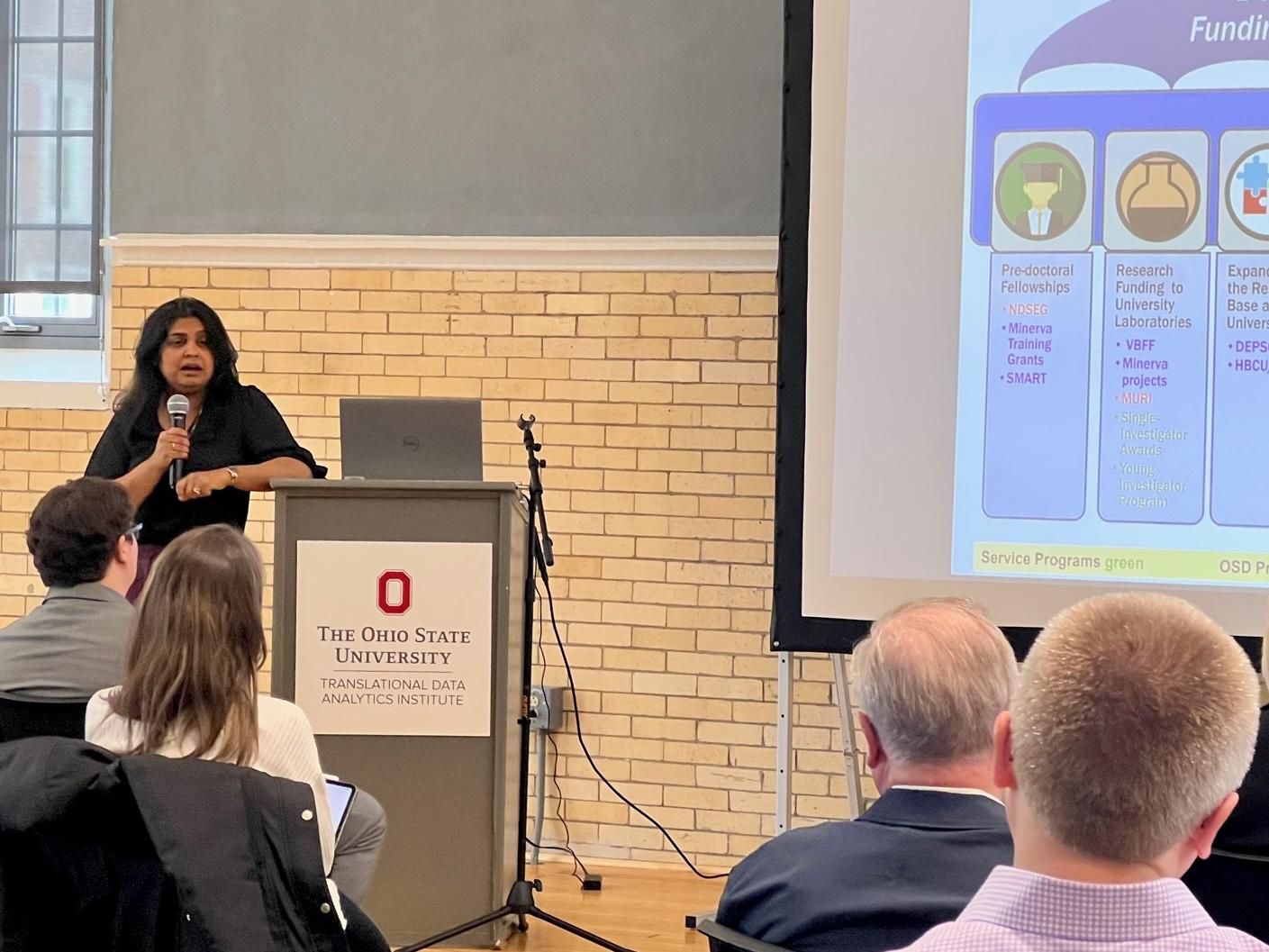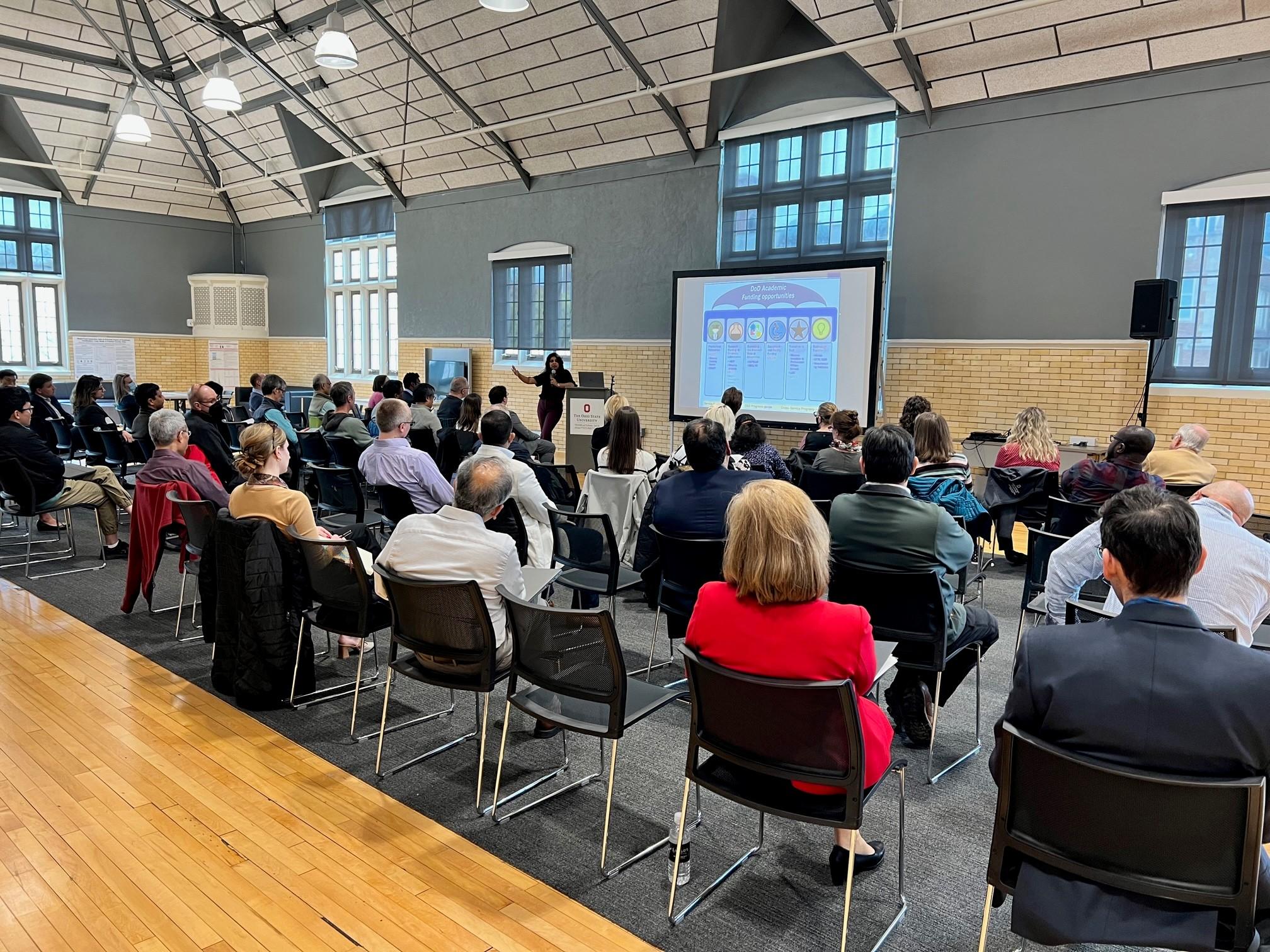Bindu Nair, PhD, director of the Basic Research Office for the U.S. Department of Defense, recently shared insights with Ohio State researchers about how best to partner with the department on basic research projects.

During her presentation, Nair emphasized the importance of building relationships with scientific program officers throughout the department. She further explained that the program officers need researchers as much as the researchers need the program officers (POs) to help the department stay at the forefront of scientific advancement. “Their success does depend on you,” she said. “It’s a lot of work to get to know a PO, but what we find is people are really happy when they develop that long-term relationship.”
“While Ohio State has longstanding relationships with many of the Department of Defense’s more applied research laboratories, the department’s significant interest in and support for fundamental research are less well-known at the university,” said Dorota Grejner-Brzezinska, vice president for knowledge enterprise. "We’re honored Dr. Nair chose to visit campus, as expanding the university’s basic research portfolio with DOD is a priority for us.” In fact, the Office of Knowledge Enterprise’s research development team has engaged a former DOD research leader to consult on the effort.
Nair is responsible for oversight and coordination of the department’s $2.5 billion investment in basic science. This work includes funding high-risk, high-reward projects in the physical, life and environmental sciences, applied mathematics and other areas that probe the limits of today’s technologies and discover new innovations that may ultimately lead to DOD technologies.
Program officers in department’s basic research apparatus at the Air Force Office of Scientific Research, the Office of Naval Research and the Army Research Office publicly identify their goals each year. Nair advised researchers to utilize these priorities to find POs with similar interests and engage them in conversation. While this takes time, it can ultimately result in mutually beneficial, long-term relationships. “Once they fund you – they are your go-to person when you have the next great idea.”

Nair also said program officers have a lot of control over the funding process, adding that they tend to support things that are riskier or things that may not get funded through a more typical federal agency panel review process. “Sometimes we fail spectacularly, and sometimes we open new fields,” she said. “It all starts with the science and sometimes that science starts way early on the edge, and we don’t always know where that is going to go.”
When it comes to basic research at the department, Nair said they strive to fund not what’s trending today, but they look to fund the not-yet emerging fields. “Our job is to identify the game-changing ideas and get you started in that.” They often fund early career investigators who are looking to change the state of science. “We’ve done that over and over again, that is the space that we operate in,” she added.
Nair wrapped up her talk again stressing the value of building relationships. “Think of the department as a networking opportunity,” she said, advising researchers to bring other investigators along on their projects or visits or to say yes when asked by colleagues to participate on a project. “That’s how we get the highly creative ideas."